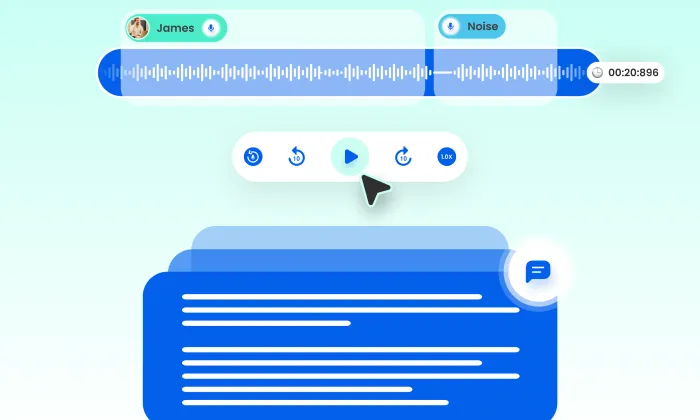What metadata should be included in a TTS dataset?
TTS
Data Annotation
Speech AI
When developing a Text-to-Speech (TTS) dataset, comprehensive metadata is crucial for ensuring the effectiveness and usability of the data. Metadata acts as a structured framework that supports various applications and enhances the quality of TTS models. Below, we explore essential metadata components that should be incorporated into a TTS dataset and their impact on model training.
Essential Metadata Elements for Comprehensive TTS Datasets
1. Text Information
- text_id: A unique identifier for each entry, facilitating easy reference and management.
- text_transcript: The exact text spoken in the audio recording. Accurate transcription is vital as it directly influences the correlation between text and speech.
2. Audio Data
- audio_filename: Links the transcript to the corresponding audio file (WAV/FLAC).
- sample_rate: Typically set at 48kHz, affecting sound clarity and quality.
- bit_depth: Usually 24-bit, determining the audio's dynamic range and fidelity.
3. Speaker Attributes
- speaker_id: An anonymized identifier ensuring privacy while allowing speaker tracking.
- gender: Specifies the speaker's gender, crucial for applications needing gender-specific voice outputs.
- age_group: Categorizes speakers into age brackets, essential for targeting specific demographics.
- accent/region: Indicates the regional accent, enhancing the TTS model's applicability across different cultures.
4. Recording Context
- emotion: An optional label indicating emotional tone (e.g., joy, sadness). Relevant for expressive TTS applications, enhancing user engagement.
- recording_device: The microphone model used, important for quality assessment.
- recording_environment: Describes the conditions under which the recording was made, ensuring consistency and clarity.
5. Alignment and Quality Assurance
- alignment_available: Indicates if phoneme or word alignments are included. This is valuable for applications like audiobooks, where precise timing is crucial.
The Strategic Role of Metadata in TTS Development
Robust metadata is essential for several reasons:
- Data Management: Streamlines workflows by enabling efficient data organization and retrieval.
- Model Training: Provides context that helps models understand text-speech relationships, especially vital for multilingual systems.
- Quality Assurance: Facilitates tracking of recording quality and ensures compliance with data protection regulations.
- Usability: Enhances dataset usability, making it easier for developers to implement in TTS models.
Best Practices for Metadata Management
- Consistency: Maintain consistent metadata entries to avoid confusion or errors during model training.
- Detail: Include comprehensive speaker attributes, recording conditions, and audio quality information to build robust datasets.
- Compliance: Ensure adherence to data privacy laws (GDPR, HIPAA) by documenting proper consent and ethical collection practices.
Real-World Impacts & Use Cases
Consider a virtual assistant needing to convey emotional tones. Metadata such as emotion allows the system to adapt voice outputs that resonate with users, improving engagement. Similarly, lacking alignment_available metadata may result in poor synchronization for applications like audiobooks or video game narration.
FAQs
Q.What are the benefits of using diverse speaker attributes in TTS datasets?
A. Diverse speaker attributes allow TTS models to cater to a wider audience, improving user experience with voice outputs that reflect different demographics and regional accents.
Q.How does metadata impact the training of TTS models?
A. Metadata provides essential context between text and speech, enabling models to learn effectively and produce coherent, contextually appropriate outputs.
For projects requiring high-quality, structured TTS datasets, FutureBeeAI offers comprehensive solutions tailored to meet specific needs. Contact us to explore how our expertly curated datasets can enhance your TTS model performance.
What Else Do People Ask?
Related AI Articles
Browse Matching Datasets
Acquiring high-quality AI datasets has never been easier!!!
Get in touch with our AI data expert now!








